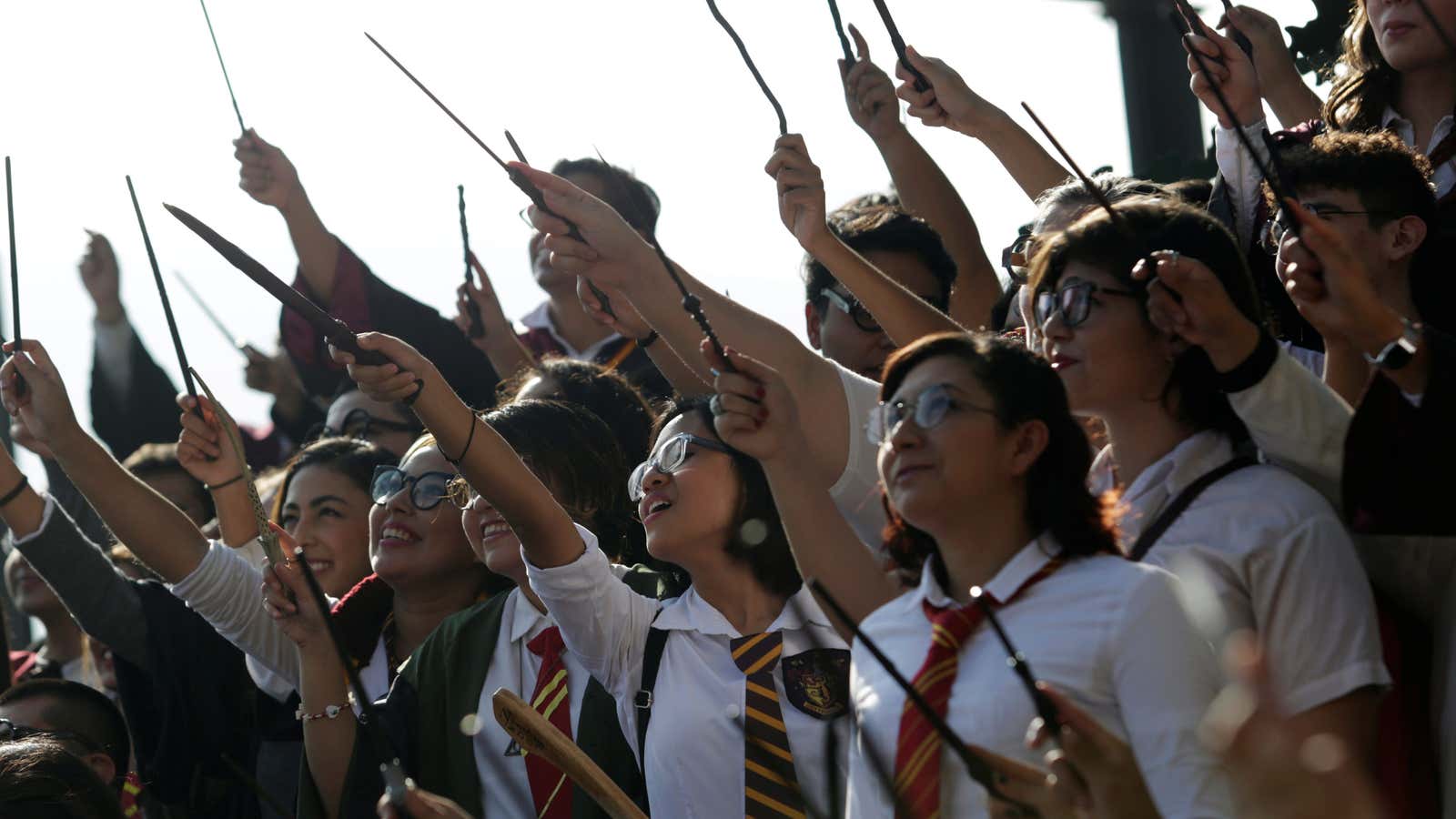If any adult took young Harry Potter seriously, Voldemort would be dead at the end of book one. Fiction is filled with young people, ignored and underestimated, who rise up and defeat villainy despite the obstacles thrown their way by their bumbling or cynical caretakers.
And yet, as a New Jersey high school English teacher tweeted last weekend (with a message liked 247,000 times), people remain surprised to see real-life young people take a stand for their principles:
The students of Marjory Stoneman Douglas High School in Parkland, Florida have captured national attention for their quick mobilization after 17 classmates and school staffers were shot and killed by a 19-year-old who stormed the school with an semiautomatic rifle last week. The students have taken their fight to their state legislature, to national television, and to the White House. This week students across the US walked out of school in solidarity, and organizers have planned a march in Washington, DC for March 24.
“The only reason that we’ve gotten so far is that we are not afraid of losing money, we’re not afraid of getting reelected or not getting reelected, we have nothing to lose,” senior Delaney Tarr told state lawmakers in Tallahassee, Florida yesterday. “The only thing we have to gain at this point is our safety.”
In videos, the students’ pluck and eloquence are indeed impressive, especially given the trauma and tragedy they’re still enduring. Many on the internet have expressed surprised delight at the spectacle of teenagers speaking hard truth to powerful, platitude-mumbling adults.
But as Ansbach points out, it should come as no surprise that teenagers have something important to say. If our fiction teaches us anything, it’s that it’s precisely because kids are underestimated that they seem capable of super-human strength and maturity. The adults of popular action stories dismiss “meddling kids” time and time again: Like in the real world, adults’ resistance to change spurs kids to act, thrusting the plot forward.
Year after year in the Harry Potter series, the professors at Hogwarts wave off Harry and his friends’ antics as mere mischief, despite the fact that several times they’ve defeated a guy so evil that no one will say his name. Harry and his friends are subjected to dumb kid-rules like restricted book sections, curfews, house points, and a “for your own good” total lack of crucial information. The series is as much about fighting the low expectations adults have of children as it is about fighting actual evil.
Fiction is littered with brainy kids who see clearly where fumbling, unimaginative adults can’t: Encyclopedia Brown, Nancy Drew, even the mystery-busting gang surrounding Scooby Doo. In the Hunger Games series, adults and authority figures are more than incompetent; they are easily corrupted and will resort to their own violent agendas every time.
There’s an obvious market for stories that show empowered kids and incompetent adults. For kids ravaged by changing hormone levels and subjected to the indignities of growing up, it makes perfect sense: “I don’t feel normal. Is it because I’m a freak, or a super hero?” This is the underlying psychological force of the stories of Spiderman’s Peter Parker, young X-Men, and Matilda the witch: The powers growing within your body and mind are forces that can be used for good, and shouldn’t be a source of fear and alienation. In these stories, youth is power itself, and stick-in-the-mud skepticism toward change seeks to thwart that power, but also emboldens action.
It’s not that teenagers are superheroes—but the adults who fail to listen to and believe them are antagonists. It should come as no surprise that teenagers, heroes or not, can speak up for themselves, organize collective action, and engage in civic dialog. They are, after all, young adults.
